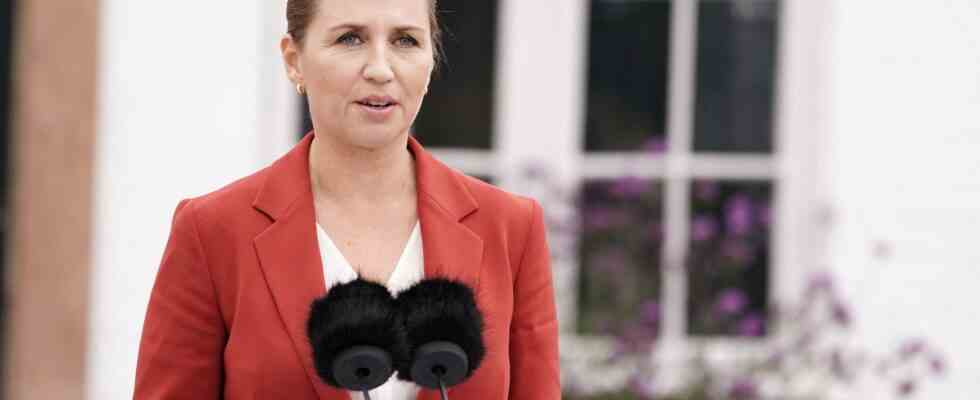Status: 05.10.2022 2:55 p.m
Early elections are to be held in Denmark in early November. The background is the massive criticism of Prime Minister Frederiksen. During the corona pandemic, she had all the mink in the country culled.
In Denmark, a new parliament will be voted on as early as November 1st – around seven months before the regular election date. Prime Minister Mette Frederiksen announced the early elections in front of her official residence in Marienborg. She was giving in to an ultimatum from a small allied party that had threatened to overthrow the government if new elections were not held.
Frederiksen announced that she had already informed Queen Margarethe about the new election date. Originally, the Danes were not supposed to vote on Parliament until June 4 of next year.
Frederiksen criticized for culling millions of minks
The elections that have now been brought forward are a consequence of the mink scandal, which caused heavy criticism of Denmark’s head of state. In the course of the corona pandemic, Frederiksen announced in November 2020 that all mink bred in Denmark for fur production would have to be culled. The corona virus mutated in the animals and was also transmitted to humans. About 15 million animals should therefore be killed nationwide. Mink farming is still suspended in Denmark, but the ban is expected to be lifted from 2023.
It was only afterwards that it turned out that there was no legal basis for the killing – it had to be created afterwards. This earned Frederiksen a reprimand from Parliament and an ultimatum from Radical Venstre. The opposition party called on the head of government to call new elections before the opening of parliament after this year’s summer break, otherwise she faces a vote of no confidence. The Danish parliament returned from the summer break on Tuesday.
Polls point to a tight neck-and-neck race
Frederiksen has been Prime Minister of a minority Social Democrat government since June 2019. In the coming elections, her center-left bloc faces an alliance of right-wing and ultra-right-wing parties. Current surveys see both sides almost on a par, as reported by the AFP news agency. Accordingly, Frederiksen’s alliance would come to 47 to 50 percent. The bloc of liberals, conservatives and three right-wing populist parties would currently receive 49 to 50 percent of the vote.

